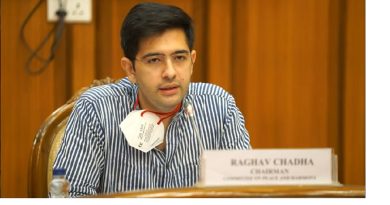UP creates special force with power to arrest without warrant
[ad_1]
Lucknow, September 15
The Uttar Pradesh government on Tuesday notified the creation of a special force empowered to search any premises or arrest any person without any warrant or orders of a court, said an official.
The move prompted a strong reaction from the Congress, with its state unit chief Ajay Kumar Lallu equating it with the 1919 Rowlatt Act or Black Act and saying that the party will explore legal options to challenge it.
The new force, named UP Special Security Force, will cater to the security of metro railways, courts, airports, banks and other vital installations in the state.
The UP SSF will work on the lines of the Central Industrial Security Force, said Additional Chief Secretary (Home) Awanish Awasthi in a statement.
The force has been created under the provisions of the Uttar Pradesh Vishesh Surakash Bal Adhiniyam (Uttar Pradesh Special Security Force Act), 2020, said Awasthi, adding the Force has been vested with powers akin to those of the CISF.
“Under the Act, any member of the Force can arrest a person without any warrant or orders of a magistrate if there is an attack to members of the Force, the threat of, the use of criminal force or obstruction in the discharge of duty,” said the additional chief secretary.
“If a crime is committed, the members of the Force can frisk any suspect without any search warrant without giving him any chance to escape or hide the evidence. On being convinced that the person has committed the crime, the person can be arrested,” Awasthi said, adding, the Force will also be empowered to search any suspect’s premises without any search warrant.
Briefing reporters on Sunday, Awasthi had said, “The state government has given orders for the constitution of a special security force. A roadmap in this regard has been sought from the UP DGP.”
“This is a dream project of the UP chief minister. The basis of this force is an order of the High Court, which had directed for creation of a specialised force for civil courts. In all, there will be 9,919 personnel in the Force,” he had said.
Later, 1,913 additional posts will be created for it, he had said.
Awasthi said five battalions would be constituted in the first phase and it will be headed by an ADG-rank officer.
“Expenses incurred in the first phase will be around Rs 1,747 crore,” Awasthi had said.
The force was constituted on the order of the Allahabad High Court, which had expressed displeasure last December over the lack of security at civil courts, said Awasthi.
On December 18, 2019, the Allahabad High Court had pulled up the Uttar Pradesh government over a shootout in a Bijnor courtroom.
Three assailants had opened fire in the court of the Bijnor chief judicial magistrate on December 17, 2019, killing a murder accused and injuring three others—two policemen and a court employee.
The Muzaffarnagar court had witnessed a similar incident in 2015, when an armed man entered the courtroom masquerading as a lawyer and shot dead Vicky Tyagi, an alleged gangster.
In another incident, Uttar Pradesh Bar Council chairperson Darvesh Kumari Yadav, 36, was shot dead by a colleague in her chamber on the civil court premises in Agra on June 13, 2019.
A two-judge HC bench had said that most incompetent police personnel are being posted at the courts, adding that it will seek the deployment of central forces if the state government is not up to the task.
Meanwhile, reacting to the constitution of the UP SSF, state Congress chief Lallu told PTI, “It is like the Rowlatt Act. It is unconstitutional, illegal and black law. There will be no ‘daleel’ (arguments), no ‘vakeel’ (advocate) against this new force.”
“The Government wants to stifle the voices of democratic forces, including those of politicians, social activists and media through this black law. We will protest against this on the streets and also inside the assembly,” he said.
Asked if the Congress will move the court to challenge this law, Lallu said, “We will explore the legal options too.”
The Anarchical and Revolutionary Crimes Act of 1919, popularly known as the Rowlatt Act or Black Act, was a legislative council act passed by the Imperial Legislative Council in Delhi on March 18, 1919.
The law had indefinitely extended the emergency measures of preventive indefinite detention, incarceration without trial and judicial review enacted in the Defence of India Act 1915 during the First World War.
It was the Rowlatt Act which brought Gandhi to the mainstream of Indian struggle for independence and ushered in the Gandhi Era of Indian politics. — PTI
[ad_2]
Source link



